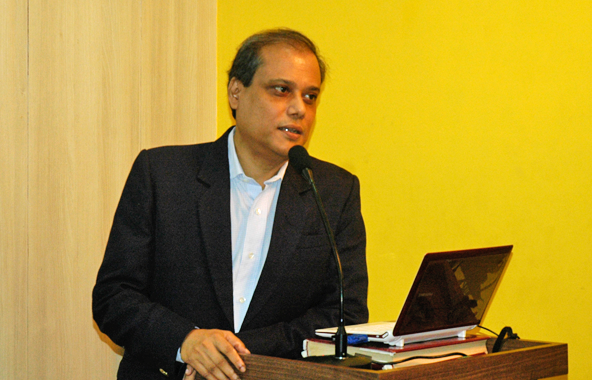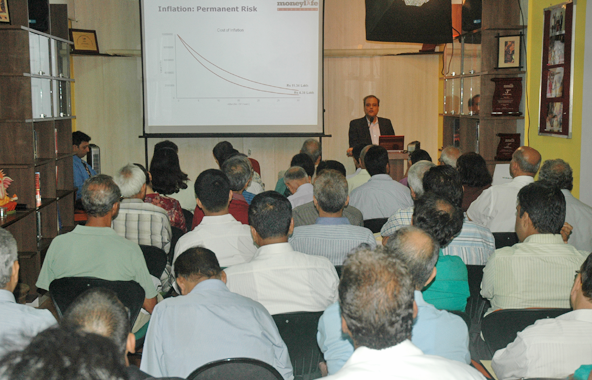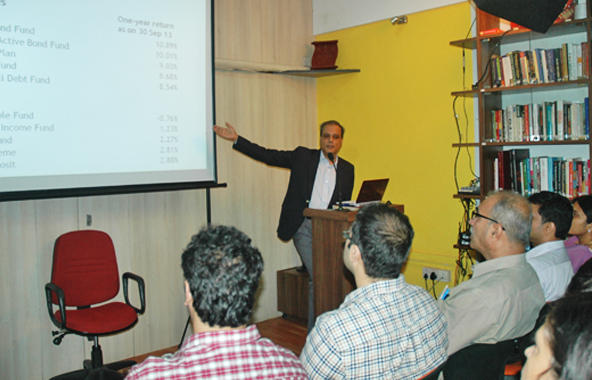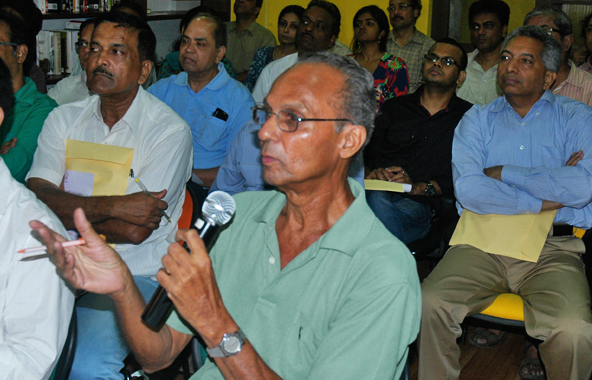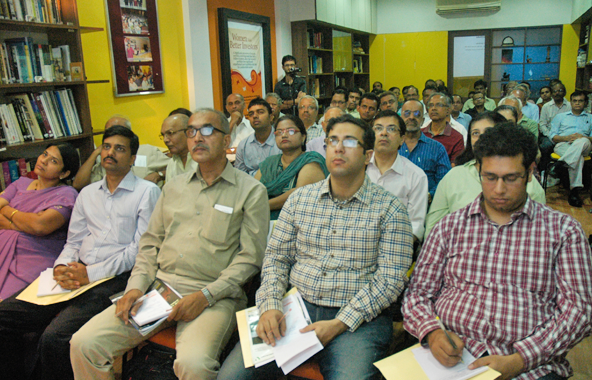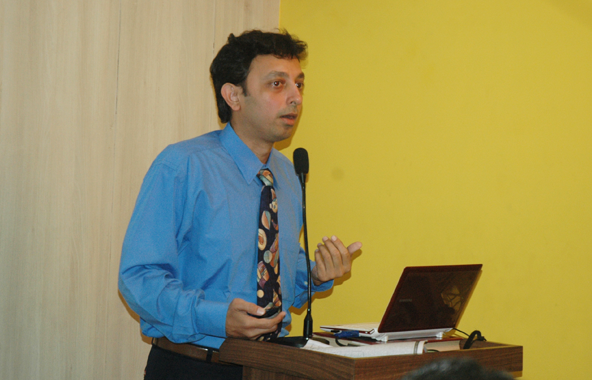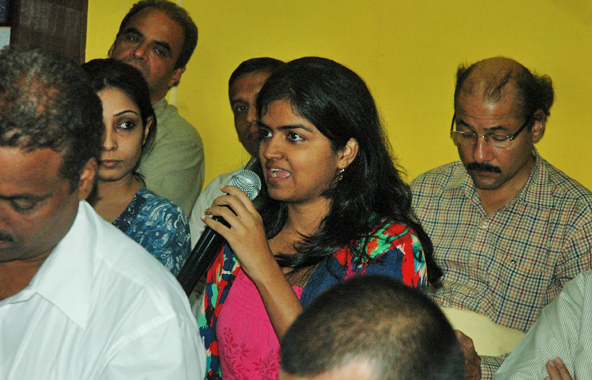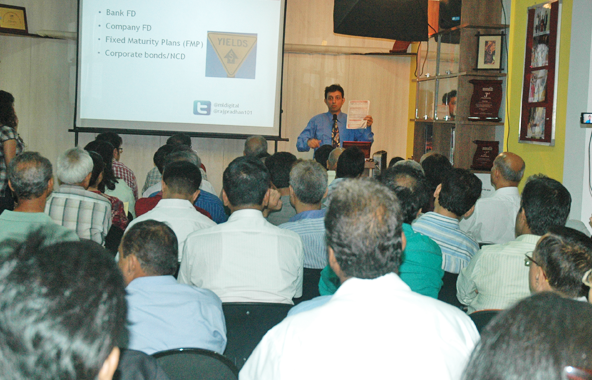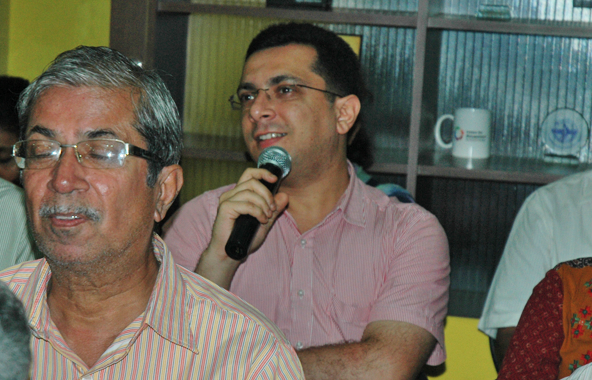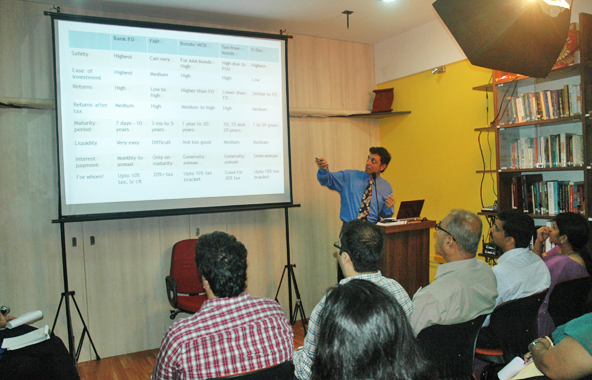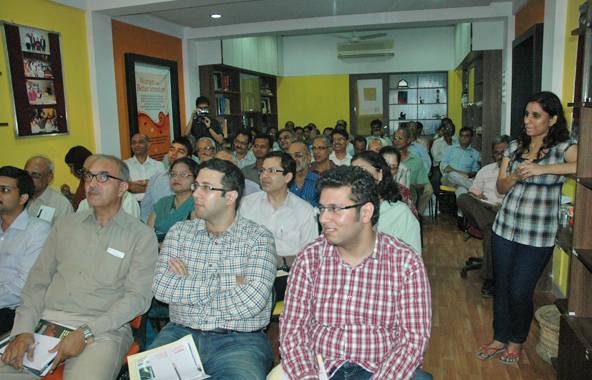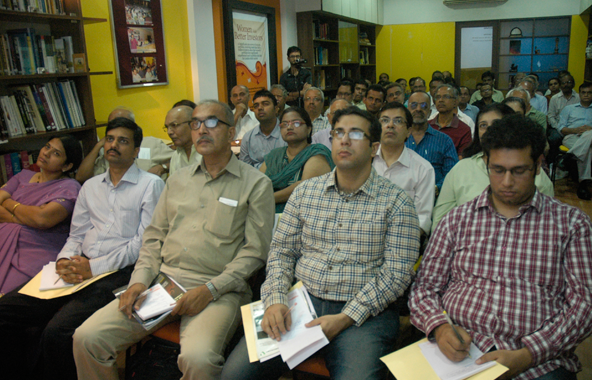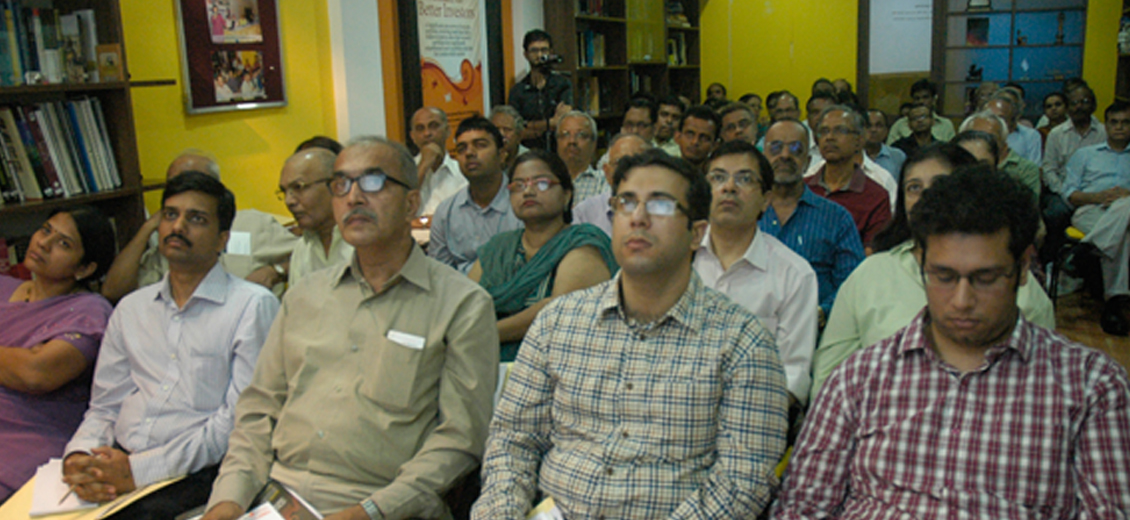
Moneylife Foundation held an exclusive, in-depth session which delved into different options for fixed income investments. Each investment option was discussed in detail for its advantages and disadvantages
Moneylife Foundation hosted its 184th seminar with the event titled “High Returns, Safe Capital” conducted by Debashis Basu, editor, Moneylife and Raj Pradhan, columnist at Moneylife, who writes on insurance and fixed income products . Mr Basu explained the different types of fixed income products available and the returns one can expect. He also explained how much should allocate to different kinds of fixed-income products such as bank fixed deposits (FDs), corporate bonds and corporate FDs. Mr Pradhan gave insights to the audience on different investment options to benefit from high rates regime.
Mr Basu explained how over different age groups from 21 to 60 years, one can invest in a mix of equity and fixed income products. Stocks and equity funds over the long run of 5-10 years have more often than not beaten inflation. Other products like bank FDs and other fixed income products may not deliver high returns but offer safety of capital.
For those who have retired, Mr Basu advised the audience to create a two-part portfolio.
One, containing 60% of the total corpus to be invested in fixed income securities such as bank and corporate fixed deposits and bonds to garner safety for the portfolio. And the second, containing 40% of the total corpus should be invested in safe equity mutual funds, which would work towards beating inflation. He illustrated this plan with an example, where he took an initial corpus of Rs1 crore and depicted its growth through graphs and charts, over a 20-year period.
For the fixed income part, one can choose from FD of banks, corporate bonds/non-convertible debentures, tax-free bonds, fixed maturity plans (FMP) of mutual funds and G-Secs. The different investment options needs to be evaluated for parameters such as safety, ease of investment, returns, liquidity, interest payment options and suitability based on your tax bracket. Each investment option was discussed in detail for its advantages and disadvantages. You can’t get best of everything in one instrument and hence there are good reasons to understand all the options and allocate your money in different options based on your risk appetite.
Bank FD from scheduled commercial banks is safe and the most popular option for Indians. The main disadvantage of it is that the returns are taxable as per your tax slab. It is better to avoid corporate FD. Bonds/NCD is better option than corporate FD. Credit rating is mandatory for NCD, but not for corporate FD. NCDs are more liquid because they can be traded in the secondary market in demat form once they are listed in the stock exchange. However, corporate FDs cannot be liquidated as easily. Secured NCDs are protected against the company’s assets while corporate fixed deposits are unsecured.
For those in 20% and especially 30% tax bracket an excellent option is tax-free bonds from Government companies. You have option for long-term investment as the bond terms are 10, 15 and 20 years. It helps with mitigation of reinvestment risks. Getting a near 9% pa tax free returns without reinvestment risk for 20 years from AAA rated government company should definitely be scooped by savers for their debt instrument portfolio.
FMP has a great tax advantage, but you need to choose carefully. Choose FMPs with high-rated securities investment. Make sure you don’t need the money in the interim. Assume that your investment will be illiquid till the FMP matures. G-secs are rarely explored as an investment option by retail investors, due to numerous reasons. The current scenario of the bond market, however, offers a unique opportunity to savers to add G-secs to their portfolio. The good news is that you have the option to buy G-secs and get it added to your regular demat account, which holds other asset classes like equities/bonds. So, you don’t have to buy gilt funds offered by fund houses, in case you want to directly invest in G-sec.
If you found this article useful, why not sign up here to receive daily updates from Moneylife straight into your Inbox


